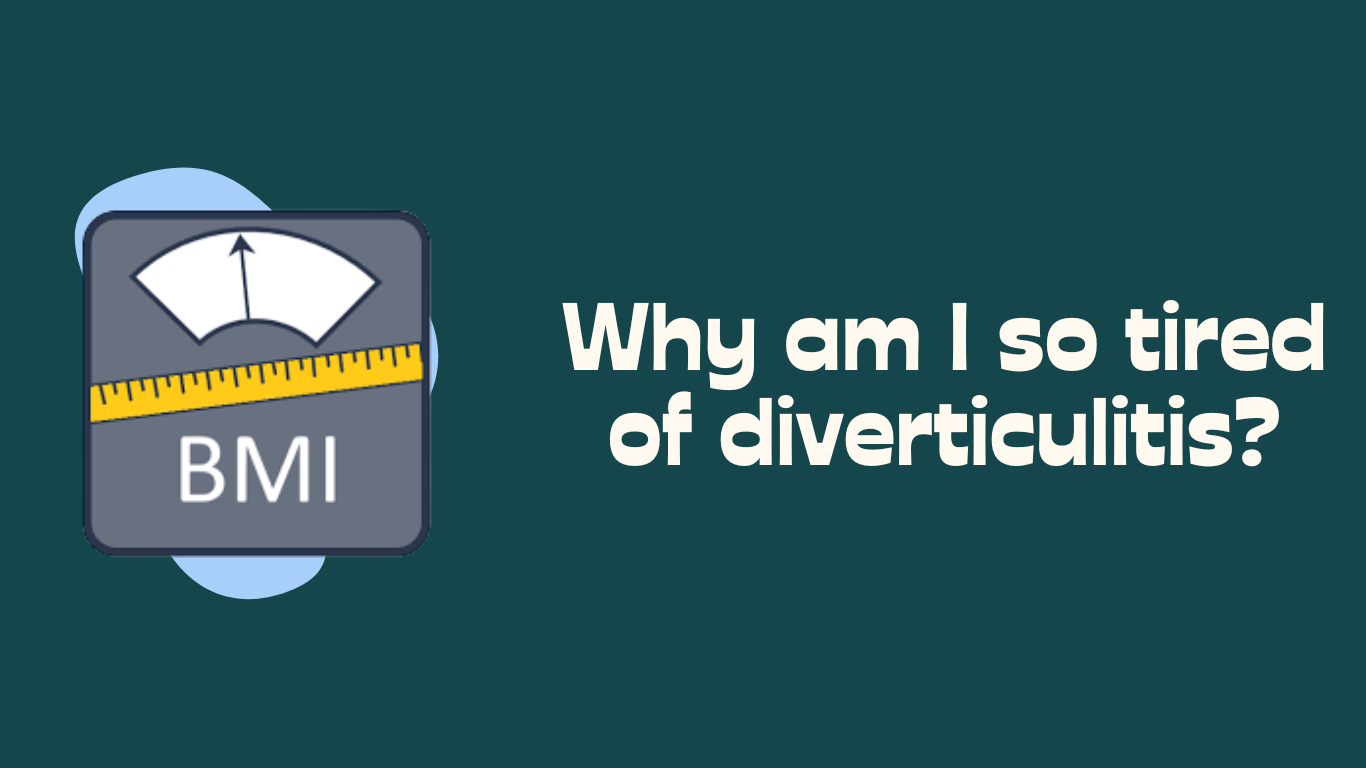Diverticulitis is a common condition that affects the digestive system, specifically the colon. It occurs when small pouches, known as diverticula, form in the lining of the colon and become infected or inflamed. While the physical symptoms of diverticulitis are well-known, such as abdominal pain, bloating, and changes in bowel habits, it is often overlooked how this condition can leave individuals feeling overwhelmingly tired. In this article, we will explore the various reasons why diverticulitis can lead to fatigue and discuss strategies to manage and alleviate this exhaustion.
The Inflammatory Process
Diverticulitis is fundamentally an inflammatory condition. When the diverticula become infected or inflamed, the body’s immune response is triggered, leading to the release of pro-inflammatory substances. These substances circulate throughout the body and can induce a state of chronic inflammation. Research suggests that inflammation can contribute to feelings of fatigue and malaise, making it a significant factor in the tiredness experienced by individuals with diverticulitis.
Nutritional Deficiencies
During a diverticulitis flare-up, individuals often experience a loss of appetite due to the discomfort and pain associated with the condition. This can result in a reduced intake of essential nutrients, including vitamins, minerals, and macronutrients. Over time, these nutritional deficiencies can take a toll on energy levels, leaving individuals feeling tired and weak. Moreover, certain medications prescribed to manage diverticulitis, such as antibiotics, can also deplete the body of vital nutrients, exacerbating fatigue.
Sleep Disruption
The symptoms of diverticulitis, such as abdominal pain and cramping, can significantly disrupt sleep patterns. Many individuals with this condition find it challenging to get a restful night’s sleep due to discomfort and the frequent need to use the bathroom. Sleep deprivation or poor sleep quality can lead to daytime fatigue, reduced concentration, and a general feeling of tiredness. The sleep disturbances caused by diverticulitis can create a vicious cycle where fatigue impairs recovery and exacerbates symptoms.
Chronic Pain
One of the hallmark symptoms of diverticulitis is abdominal pain. This pain can range from mild to severe and can be persistent or intermittent. Chronic pain not only takes a toll on physical well-being but also has a significant impact on mental health and overall energy levels. Dealing with ongoing pain can be exhausting both physically and emotionally, contributing to feelings of fatigue and weariness.
Psychological Impact
Living with a chronic condition like diverticulitis can have a significant psychological impact on individuals. The unpredictable nature of flare-ups, the constant worry about symptoms, and the potential for complications can lead to anxiety, stress, and depression. Mental health conditions are known to be associated with fatigue, as they can disrupt sleep patterns, affect motivation and energy levels, and lead to a general sense of exhaustion.
Managing Fatigue in Diverticulitis
While fatigue is a common symptom of diverticulitis, some strategies can help manage and alleviate this tiredness:
Adequate Nutrition: It is crucial to focus on a well-balanced diet, even during flare-ups. Including nutrient-dense foods such as fruits, vegetables, lean proteins, and whole grains can help replenish essential nutrients and support energy levels. Consultation with a registered dietitian can provide personalized guidance.
Rest and Sleep: Prioritizing adequate rest and improving sleep hygiene can be beneficial. Creating a relaxing bedtime routine, optimizing the sleep environment, and establishing a consistent sleep schedule can help improve sleep quality and alleviate fatigue.
Stress Management: Adopting stress management techniques, such as mindfulness meditation, deep breathing exercises, or engaging in activities that promote relaxation, can help reduce anxiety and fatigue. Seeking support from a therapist or joining a support group can also provide emotional support and coping strategies. Visit NHS BMI Calculator to check your BMI.
Medication Management: If medications prescribed for diverticulitis contribute to fatigue or nutritional deficiencies, it’s essential to discuss these concerns with a healthcare professional. They may be able to adjust the dosage or recommend alternative medications to minimize these side effects.
Regular Exercise: Engaging in regular physical activity, as advised by a healthcare professional, can improve energy levels and overall well-being. Exercise releases endorphins, which can boost mood and reduce fatigue. Start with low-impact exercises, such as walking or gentle yoga, and gradually increase intensity as tolerated.
Hydration: Staying hydrated is vital for overall health and energy levels. Drinking an adequate amount of water throughout the day can help prevent dehydration and maintain optimal bodily functions.
Medication Adherence: Following the prescribed treatment plan, including taking medications as directed and attending follow-up appointments, is crucial for managing diverticulitis effectively. By managing the condition and reducing flare-ups, it may be possible to alleviate associated fatigue.
Seek Support: Living with diverticulitis can be challenging, both physically and emotionally. Connecting with others who share similar experiences can provide a sense of understanding and support. Online communities and local support groups can offer a platform to share concerns, exchange tips, and learn from others’ experiences.
Conclusion
Diverticulitis is a condition that not only affects the digestive system but can also leave individuals feeling tired. The inflammatory process, nutritional deficiencies, sleep disruption, chronic pain, and the psychological impact of living with a chronic condition contribute to this exhaustion. However, by implementing strategies to manage and alleviate fatigue, such as adequate nutrition, restful sleep, stress management, regular exercise, and seeking support, individuals can improve their overall well-being and regain energy levels. It’s essential to work closely with healthcare professionals to develop an individualized plan that addresses both the physical and emotional aspects of living with diverticulitis. With proper management and self-care, it is possible to regain vitality and lead a fulfilling life despite the challenges posed by diverticulitis.
